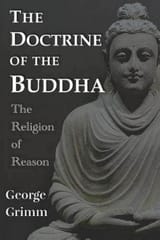Anonymous
6/26/2025, 5:52:22 PM No.24497899
I'm currently reading the Sutta Pitaka, and some of the suttas around parinibbana, rebirth etc have made me realize this shit is 100% annihilationism, and the only reason its rejected as such is because of semantics.
Parinibbana is the end of rebirth, suffering, consciousness and ALL experiences. There is no awareness, identity, or experiencer left, its total cessation as quoted by the Buddha. This matches the definition of annihilation, however when pointing out that if nothing remains, and nothing can be experienced, you're annihilated, they come back with "its just the unconditioned, you can't understand it with dualistic thinking". But the Buddha's own words are describing actual annihilation, even if he rejected annihilation.
I've read that this is really a language issue, and that in the original language Buddhism was taught in, it was called "deconfiguration" which was literally a more positive Indian spiritual version of the Western understanding of annihilation.
Buddhists, Theravadin ones at least, are attempting to commit quantum suicide.
There are other hilarious aspects in the Suttas as well, like the one about allowing yourself to be butchered.
Parinibbana is the end of rebirth, suffering, consciousness and ALL experiences. There is no awareness, identity, or experiencer left, its total cessation as quoted by the Buddha. This matches the definition of annihilation, however when pointing out that if nothing remains, and nothing can be experienced, you're annihilated, they come back with "its just the unconditioned, you can't understand it with dualistic thinking". But the Buddha's own words are describing actual annihilation, even if he rejected annihilation.
I've read that this is really a language issue, and that in the original language Buddhism was taught in, it was called "deconfiguration" which was literally a more positive Indian spiritual version of the Western understanding of annihilation.
Buddhists, Theravadin ones at least, are attempting to commit quantum suicide.
There are other hilarious aspects in the Suttas as well, like the one about allowing yourself to be butchered.
Replies:









